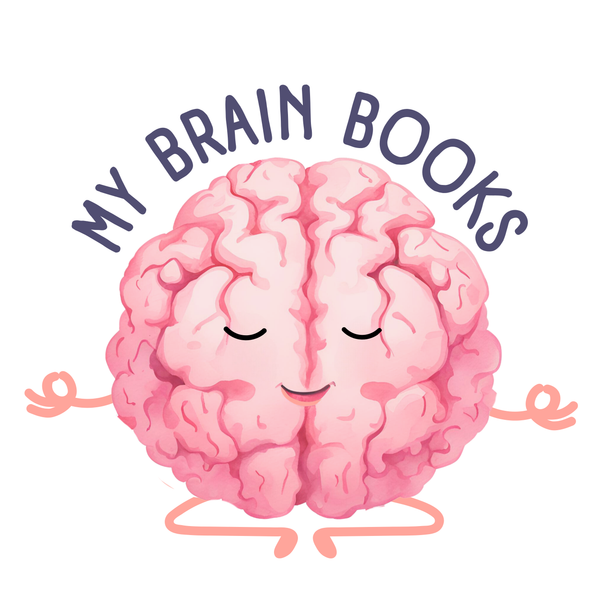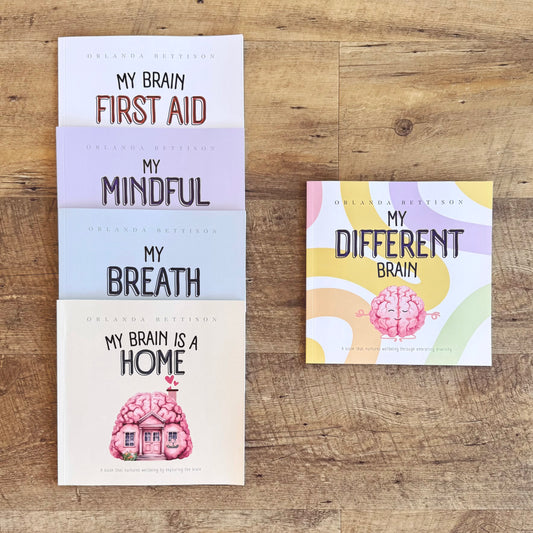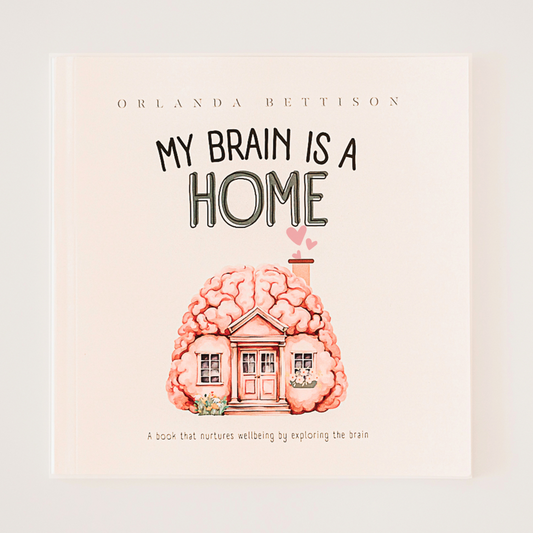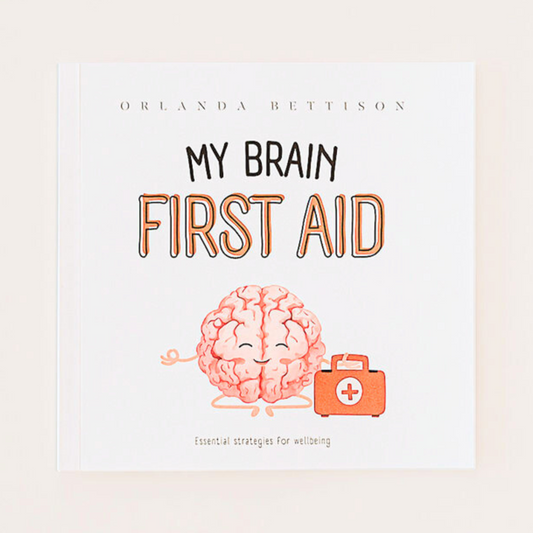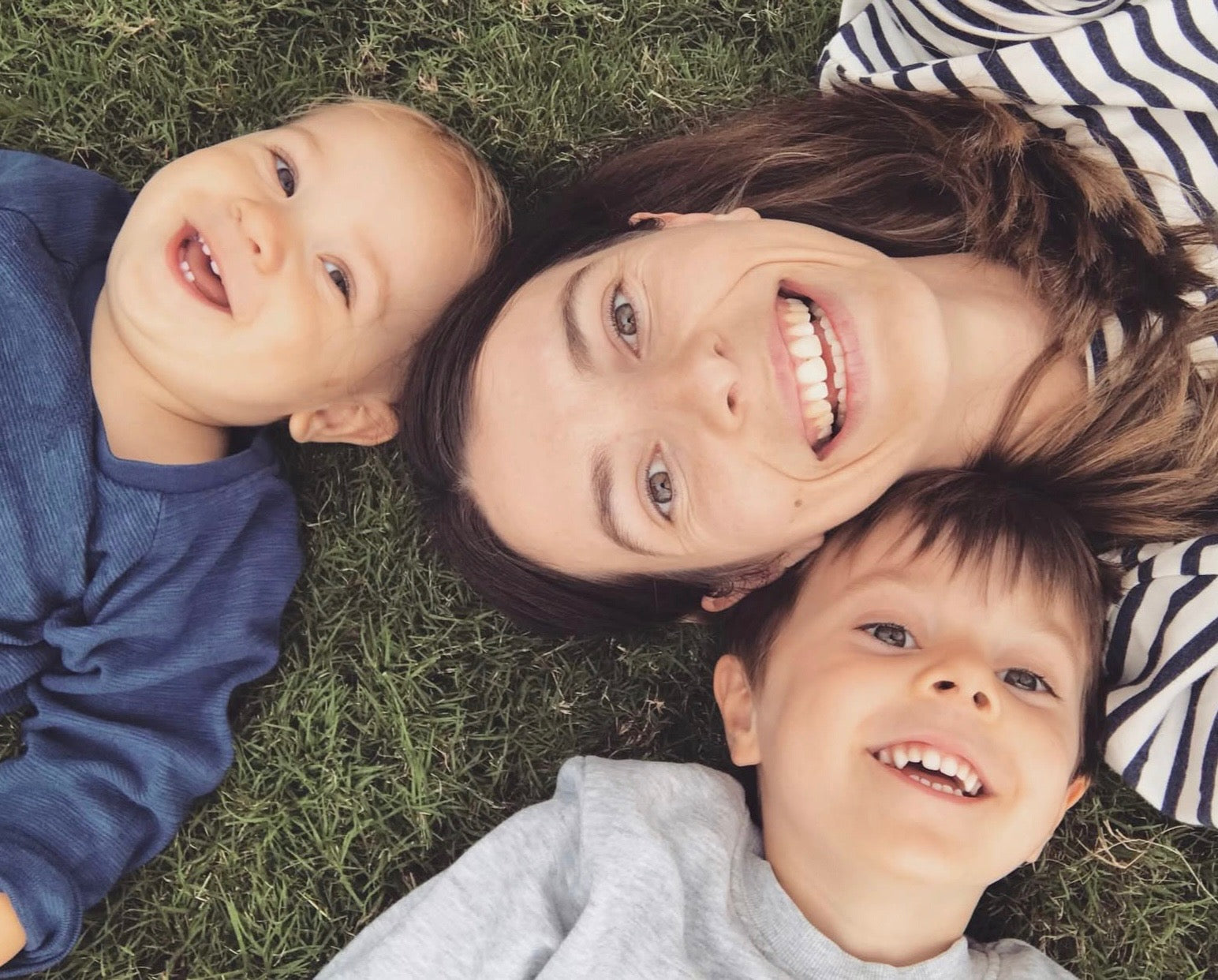
About the Author
Orlanda is a mother of two boys living in Sydney, Australia. With a degree in psychology and over a decade of experience as a primary school teacher, she is passionate about promoting children's mental health and wellbeing. Her background uniquely combines academic knowledge with practical classroom experience. Orlanda's work has also been profoundly influenced by her own personal journey with anxiety and depression, giving her valuable firsthand insights into mental health management strategies that truly work. This personal experience adds depth and authenticity to her books, making them not just theoretical but grounded in real-life application.

Where We've Come From
Orlanda's journey began with psychology studies, where she discovered her passion for childhood development, leading her to pursue additional qualifications in Primary Education to make a meaningful impact through education. In 2024, she successfully launched a Kickstarter campaign to fund the publication of the My Brain Book Series, which has quickly become a valued resource for parents, educators, Occupational Therapists, Counsellors and Psychologists. The impact has been remarkable, with regular heartfelt testimonials describing changes in children's ability to understand and manage their emotions, and parents confidence in supporting their children through challenges.

Where We're Going
This vision extends beyond publishing—we are building a movement to change how we approach children's mental health. Through the My Brain Book Series, we are delivering accessible evidence-based strategies that bridge the gap between clinical knowledge and everyday application. These resources are used for children across diverse needs—helping those with Anxiety, Autism Spectrum, ADHD, as well as neurotypical children, to develop essential mental health skills. The ultimate goal is to create a more emotionally intelligent generation, who live healthier & happier lives.

Meet The Team
We are a small team, that share the same values and want to see meaningful change. All of our lives have been touched by mental health and it is an area we are all passionate about.
The Books
-
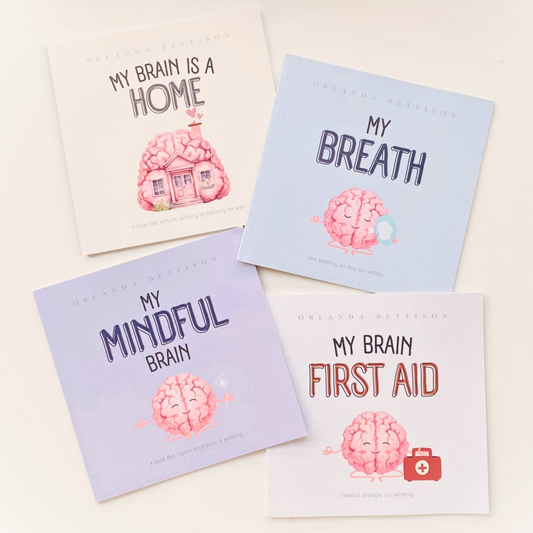 Sale
SaleMy Brain Book Bundle
Regular price $68.50 AUDRegular priceUnit price / per$74.00 AUDSale price $68.50 AUDSale -
Book Bundle + My Different Brain
Regular price $87.00 AUDRegular priceUnit price / per$92.00 AUDSale price $87.00 AUDSale -
My Brain Is a Home
Regular price $21.50 AUDRegular priceUnit price / per -
My Brain First Aid
Regular price $21.50 AUDRegular priceUnit price / per
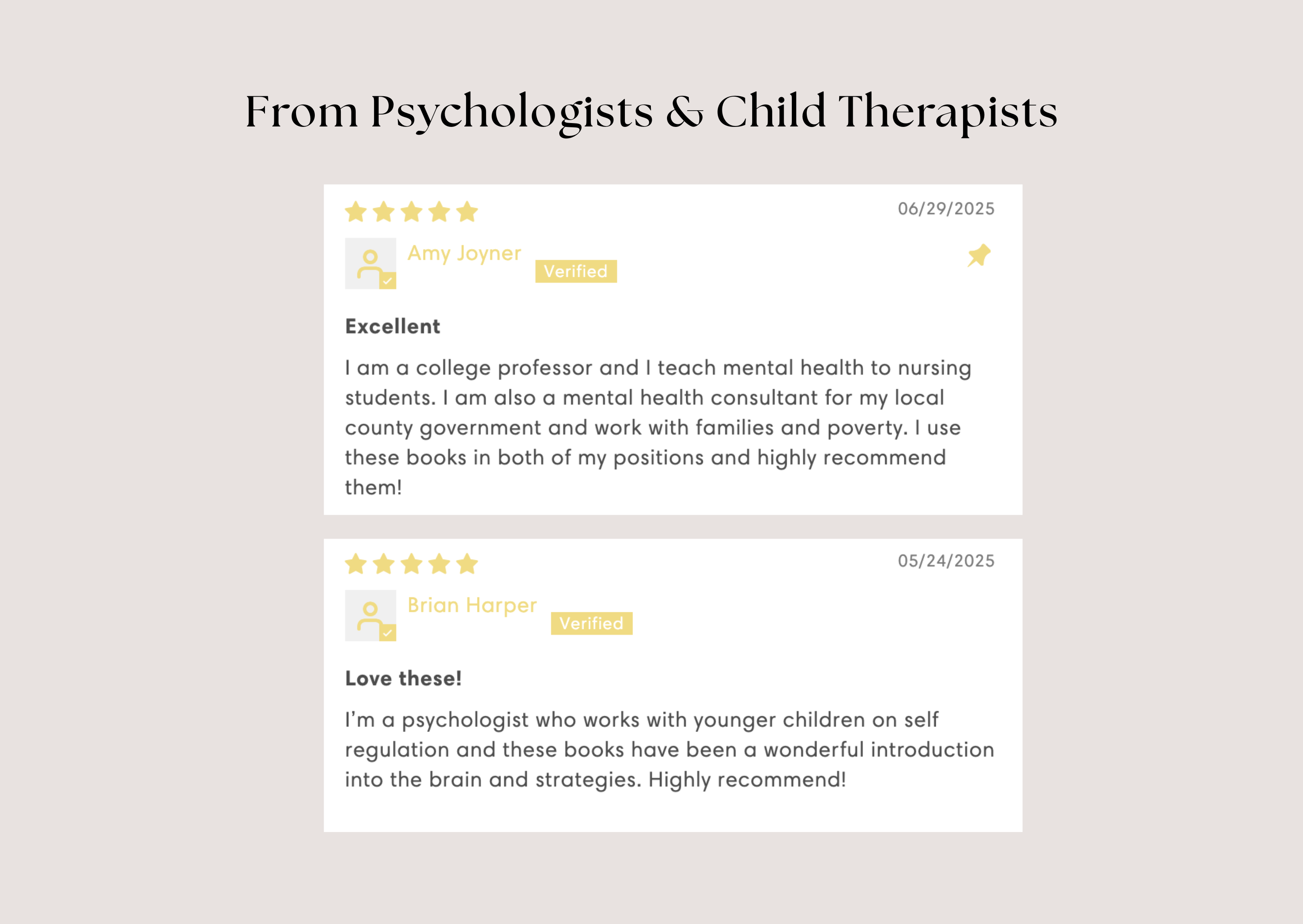
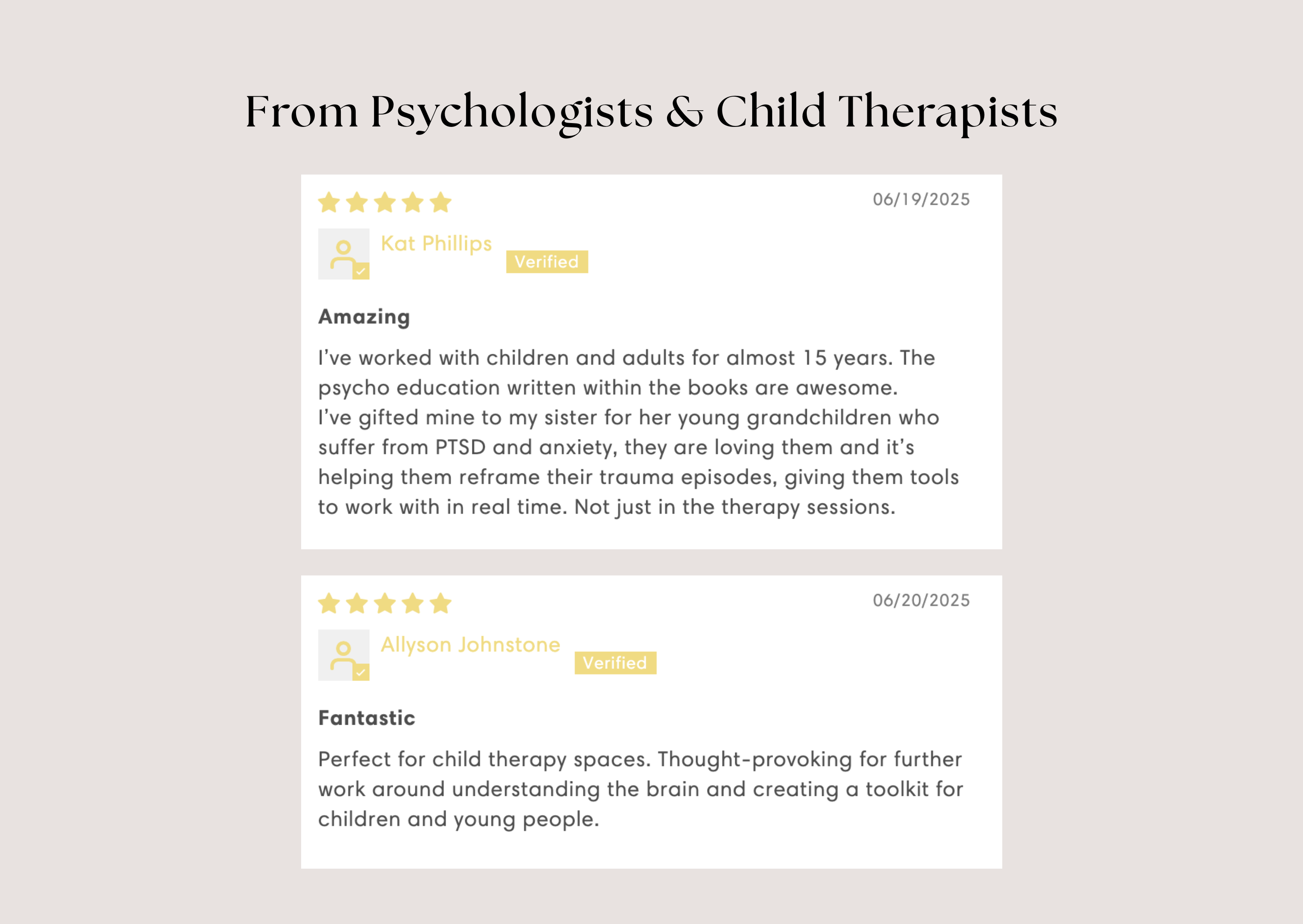
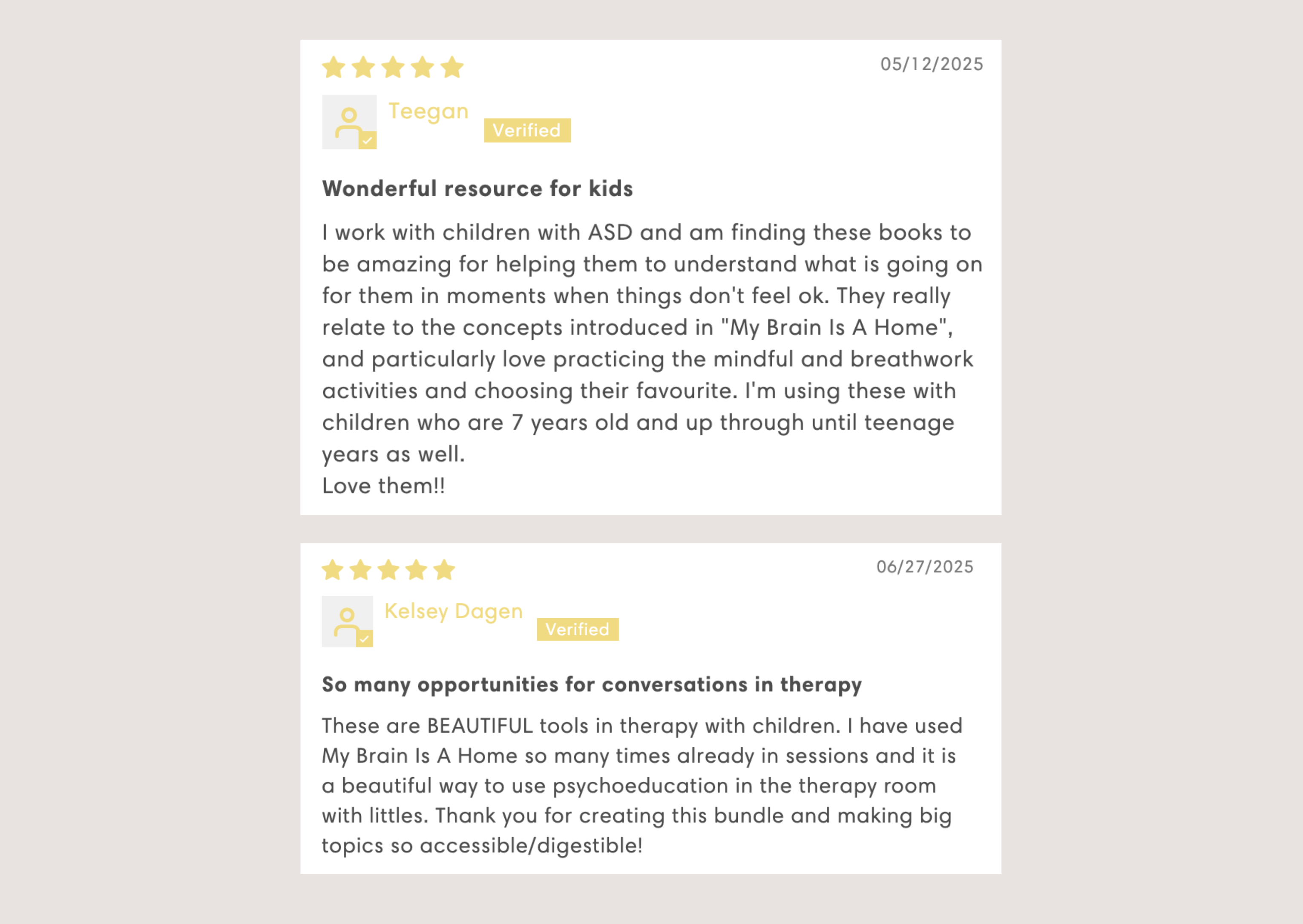


Research & Evidence
TEACHING CHILDREN ABOUT THEIR BRAIN
When children learn how their brain works and practice ways to manage their emotions, they become better at handling stress and challenges. Kids who understand their emotions early in life have better mental health as they grow up.
Research Evidence:
- Ages 0-5 are the most important years for learning emotional skills and self-control, which help kids succeed in school and life The importance of emotional competence and self-regulation from birth: a case for the evidence-based emotional cognitive social early learning approach | International Journal of Child Care and Education Policy | Full Text (International Journal of Child Care and Education Policy, 2017)
- Learning to manage emotions helps with attention, behavior, and doing well in school, which is important for long-term health and happiness The role of emotional regulation on early child school adjustment outcomes - ScienceDirect (ScienceDirect, 2024)
BREATHING
Breathing techniques have been shown to calm the mind and body by changing how our nervous system works. Breathing slowly and deeply physically relaxes the body and reduces feelings of stress and anxiety.
Research Evidence:
- Studies found that slow breathing exercises significantly reduce stress, anxiety, and depression compared to doing nothing NatureNature (Scientific Reports meta-analysis, 2022-2023)
- Research showed that guided breathing exercises had a major effect on reducing anxiety and stress Clinical effectiveness of guided breathing exercises in reducing anxiety, stress, and depression in COVID-19 patients | Scientific Reports (Scientific Reports, 2024)
MINDFULNESS
Mindfulness is paying attention to the present moment without judging thoughts or feelings. It helps people worry less and feel more in control of their emotions. Regular mindfulness practice reduces anxiety & depression and improves attention & focus.
Research Evidence:
- Studies of 33 research trials showed that mindfulness programs greatly improved attention, focus, and mindfulness skills compared to regular activities NihWiley (Journal of Child Psychology and Psychiatry, 2019)
- Mindfulness helps with many health problems including depression, anxiety, stress, sleep issues, addiction, pain, and social behaviors Mindfulness-based interventions: an overall review - PMC (PMC review, 2021)
MENTAL HEALTH TOOLS
Mental health tools give people practical ways to handle stress, manage emotions, and bounce back from difficulties. Using these tools regularly helps people stay mentally healthy throughout their lives.
Research Evidence:
- Proven techniques like mindfulness, changing negative thoughts, and breathing exercises help people manage emotions better and improve quality of life Emotional Regulation: 5 Evidence-Based Regulation Techniques (Positive Psychology review, 2025)
- When children learn emotional control skills, it helps protect them from developing anxiety and depression Research Review: Child emotion regulation mediates the association between family factors and internalizing symptoms in children and adolescents – a meta‐analysis - Lin - 2024 - Journal of Child Psychology and Psychiatry - Wiley Online Library (Journal of Child Psychology and Psychiatry, 2024)
